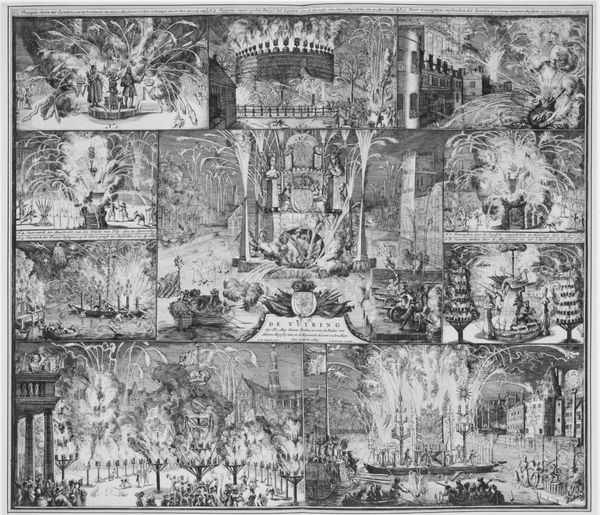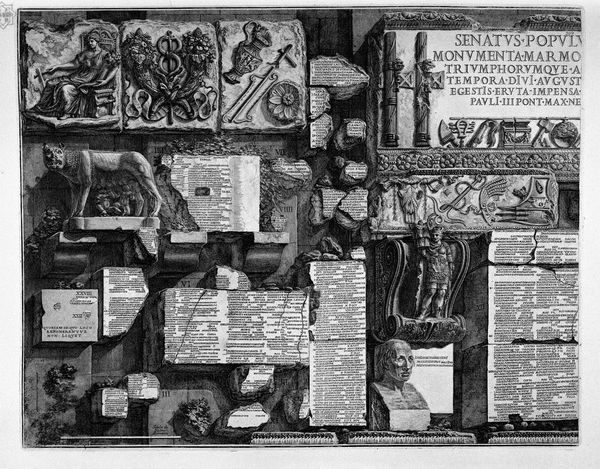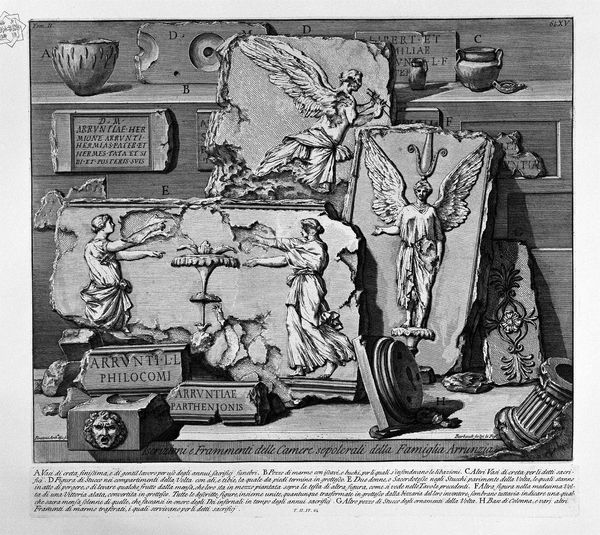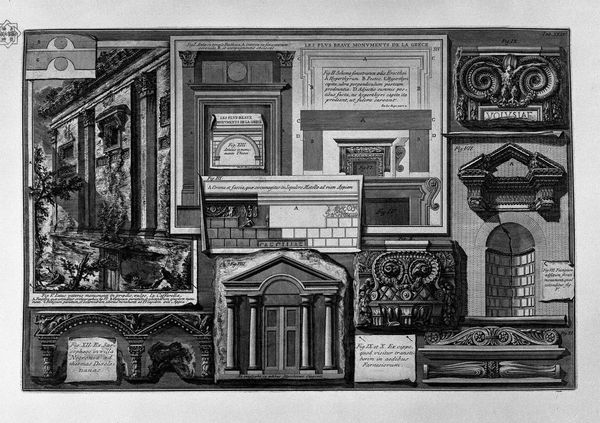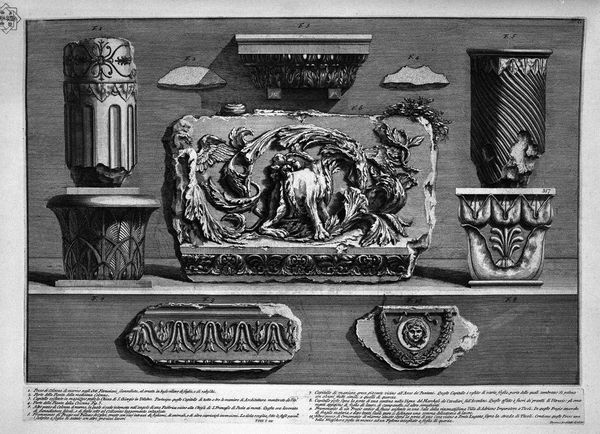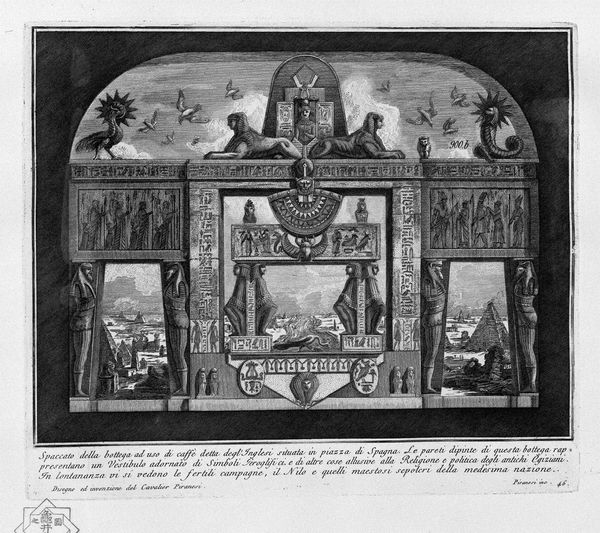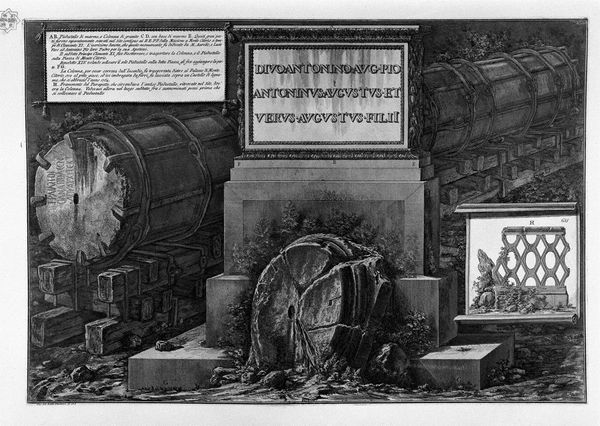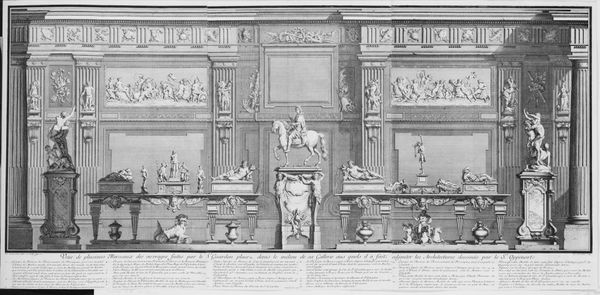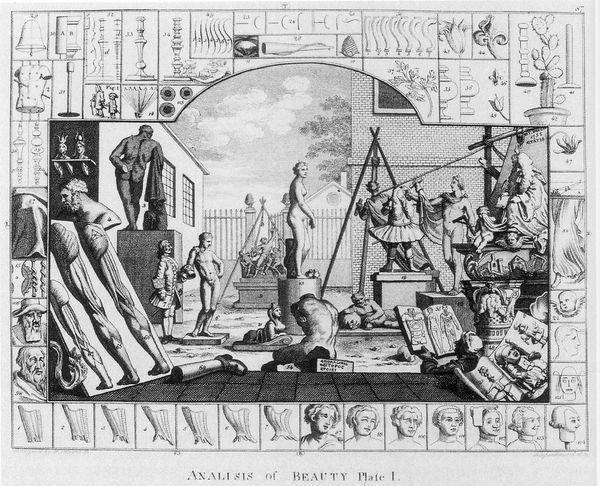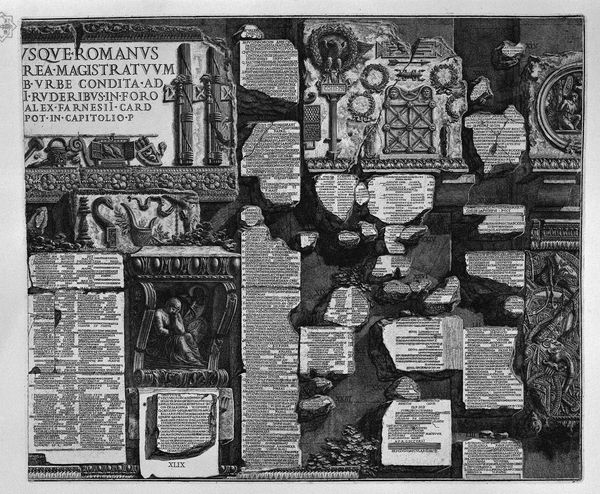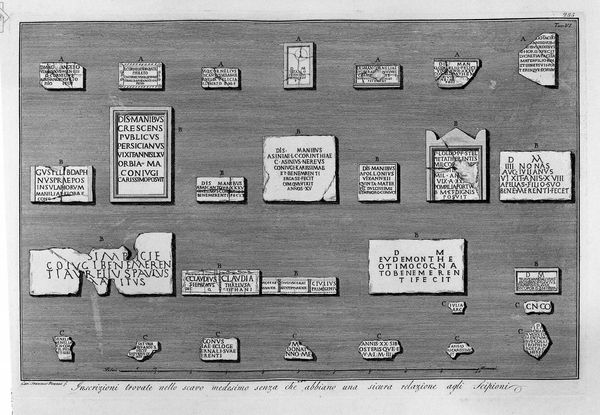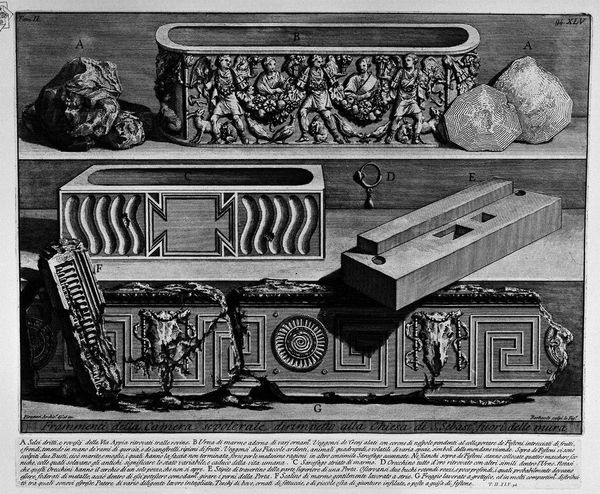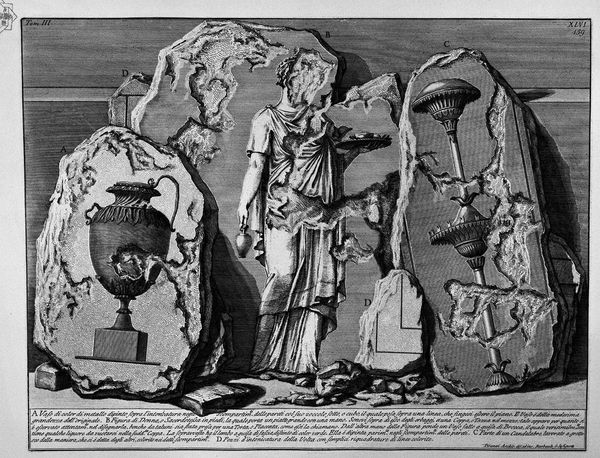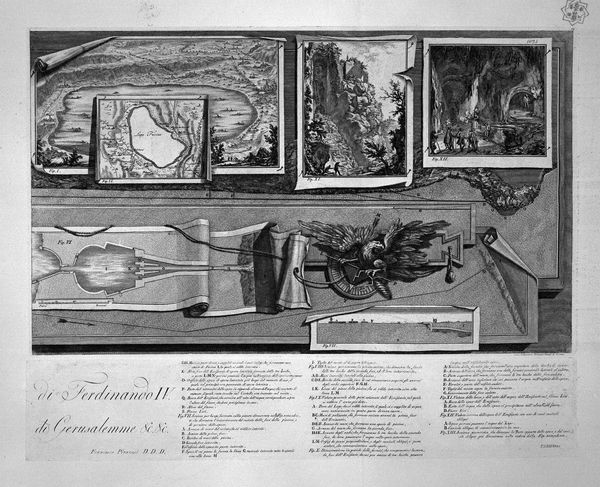
The Roman antiquities, t. 2, Plate XII. Prospectus and Profile of a tomb of the previous rooms 1756
0:00
0:00
drawing, print, etching, engraving, architecture
#
drawing
#
allegory
# print
#
etching
#
greek-and-roman-art
#
geometric
#
ancient-mediterranean
#
arch
#
history-painting
#
academic-art
#
engraving
#
architecture
Copyright: Public domain
Editor: Here we have Giovanni Battista Piranesi’s print, "The Roman antiquities, t. 2, Plate XII. Prospectus and Profile of a tomb of the previous rooms", created in 1756. The stark black and white and architectural rendering give it a detached, almost clinical feel, despite depicting a tomb. What symbolic weight do you see within these carefully delineated lines? Curator: The print presents us with a vision of Roman grandeur, fragmented and decaying. Note how Piranesi meticulously documents the stucco ornamentation. These aren’t just decorative elements, but carriers of cultural memory. Do you notice how the recurring motifs—the mythical creatures, the geometric patterns—echo across the different panels? Editor: Yes, the winged creatures and diamond shapes seem intentionally placed, almost like a coded language. Curator: Exactly. Think of these images as fragments of a lost narrative, symbols chosen to resonate with the deceased and perhaps guide them in the afterlife. The arch, for instance, is a powerful symbol of transition and passage, both physical and spiritual. What do you make of its state of ruin? Editor: It speaks to the inevitable decay of even the grandest structures, a reminder of mortality. Curator: Indeed. Piranesi isn’t simply documenting; he's also engaging in a dialogue with the past, acknowledging both its magnificence and its fragility. It is almost a memento mori itself. Editor: That's a very poignant observation. I see it in a completely new light now. Curator: These visual remnants offer a powerful connection to ancient beliefs, preserved, even celebrated in the face of decay.
Comments
No comments
Be the first to comment and join the conversation on the ultimate creative platform.
